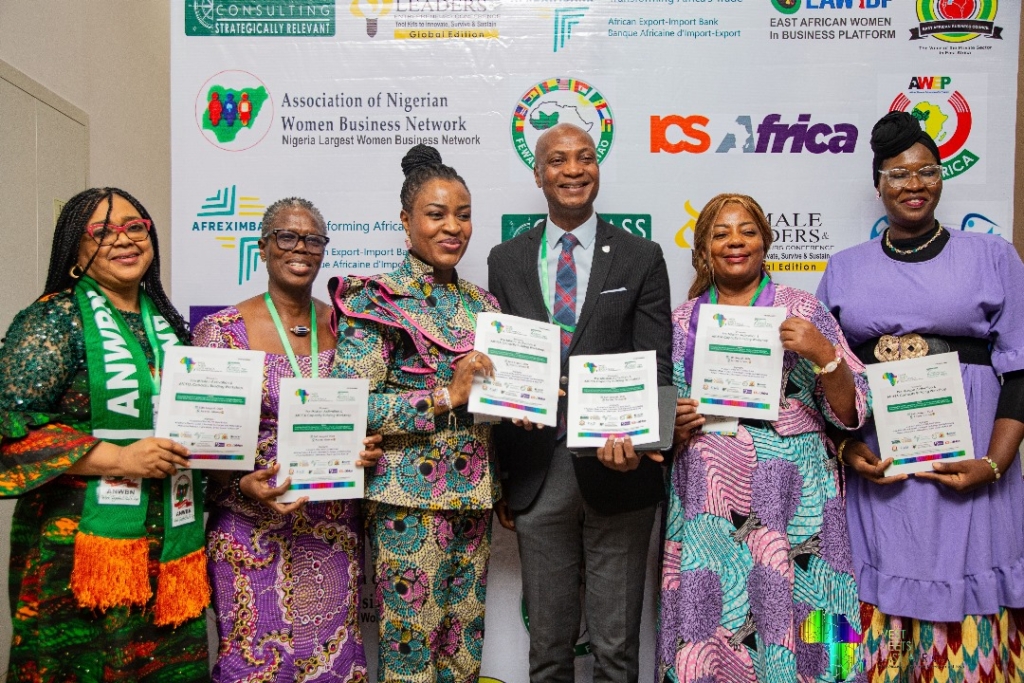The Chief Executive Officer of Compass Global, Mrs. Tokunbo Chiedu has asserted that a collaboration between West and East African sub-regions could contribute improve intra-Africa trade.
Mrs. Chiedu who is also the Convener of the West Africa Meets East Africa Initiative, said a strategic plan must be formulated and holistically implemented to streamline trading activities between the two sub-regions.
She was speaking during a recent market visit to Ghana and Pre-Mission Activation/African Continental Free Trade Area (AfCFTA) Capacity Building Workshop.
The Workshop was themed ‘Unlocking the AfCFTA Opportunity for Women &Youths: Leveraging Regional Value Chain Opportunities and Business Linkages to Enhance Intra-Africa Trade.’
It gave a platform to stakeholders to gain a deeper understanding of how to capitalize on the African free trade continental agreement, focusing on negotiation strategies and deal-making. It was preceded by market visits to indigenous Ghanaian factories.
Under the auspices of the organized private sector, the West Africa Meets East Africa Initiative was launched in 2022 with the support of AFREXIM Bank, the ECOWAS Commission, and a host of strategic partners, including the UN Economic Commission for Africa – West Africa Office.
It aims to strategically position Africa’s ecosystem of small-medium enterprises, women and youth entrepreneurs, and organizations to leverage the AfCFTA and promote regional integration.
Mrs. Chiedu highlighted that the improvement of intra-Africa trade necessitates a purposeful drive towards success, with specific attention given to countries engaging in substantial volumes of intra-African trade.
She lamented the continuous decline in intra-African trade, indicating that the 2022 Afreximbank report, revealed that intra-African trade remains low, constituting approximately 16% of the continent’s total trade volume.
She added that intra-African trade falls significantly below the levels of intra-continental trade in Asia (59%) and Europe (68%).
“The two regions of West Africa and East Africa mutually benefit from each other due to the complementary nature of their offerings. Collaboration and the formation of strategic partnerships that can translate into trade become more feasible. Thus, the convergence of West Africa and East Africa is centered on leveraging regional value propositions, with a focus on the value chains within these regions”, she said.
Mrs. Chiedu explained that Ghana could leverage the shea butter industry and improve export trade if industry players received the required support to expand production capacity and finance export trades to meet demands from across the world.
“To address this challenge, we advocate for the agregating clustering convergence of our two regions. While we are also engaging with other regions, the pilot initiative of West meets East Africa is aimed at showcasing the regional value propositions of West Africa and facilitating reciprocal trade arrangements.
“SMEs, including women and youth entrepreneurs, are encouraged to convene at the negotiating table and facilitate mutually beneficial transactions”, she said.
She cited the case study of a deal valued at $500,000 secured for Sesame Seeds and Shea Seeds which emerged from the trade mission to Kenya in 2023, hoping future missions would lead to the sealing of similar deals.
Mrs. Chiedu announced that there would be a subsequent mission to Kenya in November, following the inaugural launch in the country last year. She said that the team would focus on activating and operating the deal room established in 2023.
She outlined that pre-mission training has been added to the workshop to help equip participants with the required expertise for trade missions.
“Notably, we secured a deal valued at half a million dollars for Sesame Seeds and Shea Seeds. This underscores the commitment of this process towards identifying the demand for West African products or resources in other regions,” she revealed.
The President of the Africa Women Entrepreneurship Program (AWEP), Comfort Adjahoe–Jennings, emphasized that the workshops and tours were designed to eradicate the culture of individualism among women in business in Africa, fostering collaborative relationships among stakeholders across diverse regions.
“Our primary focus lies in cultivating partnerships with various women’s organizations to meet the growing demand for our products and empower future generations. Our goal is to revolutionize the current landscape by addressing the challenges women encounter and dismantling the obstacles hindering their collaboration”, she said.
She underscored the group’s staunch stance against the export of raw materials, emphasizing the need to add value to the raw materials on the African continent before exporting them to create unending job opportunities for our youth and enhance economic expansion.
“Within our respective chapters, we organize ourselves into clusters based on industry specialization, such as food, cosmetics, and craft services. This categorization facilitates collaborative problem-solving and capacity-building initiatives tailored to the specific requirements of each group”, Madam Adjahoe–Jennings concluded.
The AfCFTA was launched in 2012, stands as a pivotal initiative within Agenda 2063, Africa’s Development Framework, with a primary objective to expedite intra-African trade and promote Africa’s global trading position by creating a united African front and policy framework in global trade negotiations.
















